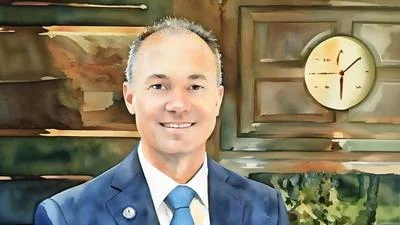Western policymakers must balance their national trade interests in China with security concerns. Human rights advocate and author Benedict Rogers argues that the balance is made easier when there is clarity about the real adversary, which he says is the Chinese Communist Party rather than China as a nation.
Rogers grew up in a well-traveled family, took a gap year at 18 to teach English in Qingdao in 1992—three years after Tiananmen—and later lived in Hong Kong from 1997 to 2002 as a journalist. He spent decades in human-rights advocacy, co-founded Hong Kong Watch, and serves as Senior Director at Fortify Rights. His books include The China Nexus: Thirty Years in and Around the Chinese Communist Party’s Tyranny.
Rogers describes the draw of Asia and his first look behind the façade. “I fell in love with China at 18,” he says. “I love the country and its people–I oppose the CCP’s repression.”
Early visits shaped his view of a society opening in limited ways. “Through the 1990s and early 2000s, space for civil society grew,” he says. ““There was a sense of civil society emerging and some level of independent media, bloggers, and lawyers.” That hope was diminished under Xi Jinping. “He turbocharged the crackdown,” Rogers says, and now “people disappear, space closes, and Hong Kong unravels far faster than I expected.”
He sees the CCP as the principal global antagonist to liberal norms. “Today it is the biggest threat to freedom in the world,” he says. On the international stage, “it facilitates Putin’s war in Ukraine and keeps regimes in Burma and North Korea alive.” At home in China, “it represses the Han majority and minorities alike.” He offers specific examples: “In Xinjiang a genocide takes place, in Tibet repression intensifies, Hong Kong’s freedoms are dismantled [and] aggression toward Taiwan rises.”
Russel encourages Westerners to read a foundation text of the Xi era. “Document Number Nine puts it in black and white,” he says. “It opposes a free press, an independent judiciary, civil society, and universal human rights.”
One problem is that economic dependency blinds Western leaders. “The obsession with China as a market becomes the biggest hindrance,” he says. “We put all our eggs in one basket rather than diversifying markets and supply chains.”
He says we should be bolder in standing up for our values. According to Rogers, China will still trade when their interests require it. “Limit involvement in sensitive sectors and be clear about terms,” he advises. “When you grovel and sacrifice values, they lose respect and try to walk all over you.”
Rogers argues that human rights should be at the core of all Western diplomacy with China’s authoritarian party. “The way the CCP treats its own people is the way it would treat others if given the opportunity,” he says. “If an invasion of Taiwan happens, you can see the future by looking at China today.”
He recalls meeting the Dalai Lama after interviewing him for The China Nexus. “He stands as one of the great moral leaders of our time,” he says. He also admires imprisoned Hong Kong publisher Jimmy Lai. “He is a British citizen, 78 years old, and endured five years in solitary confinement for the ‘crime’ of committing journalism,” Rogers says. “He could leave at any time, yet he chose to stay with his people.”
He says that policy makers should use their influence to shift thinking toward opposing the CCP rather than China itself. “Use whatever influence you have,” he says, but “be clear we are not against China’s people or culture–we oppose the CCP’s tyranny.”









